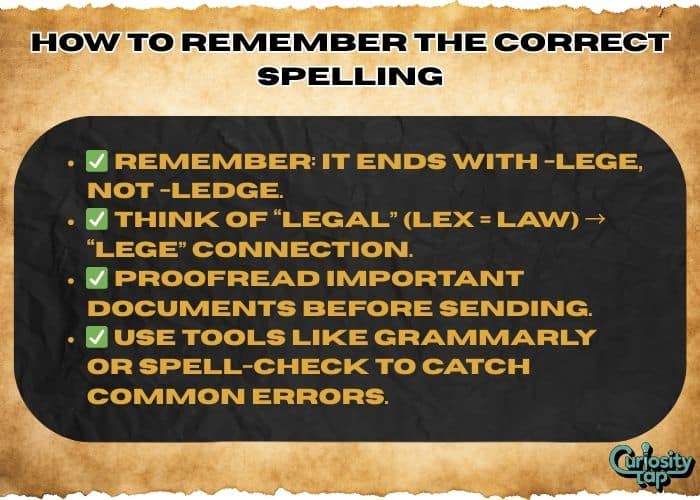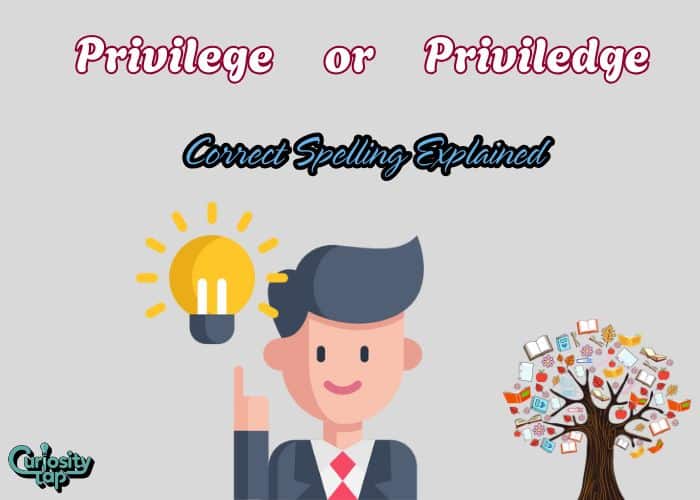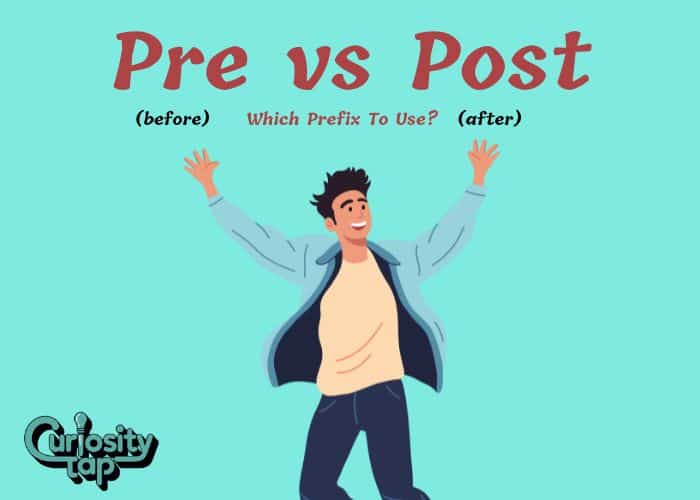Mistakes in spelling can easily undermine your professionalism, especially with tricky words that look and sound similar. One such confusion often arises between “priviledge” and “privilege.”
While the two may appear interchangeable, only one is accepted as correct in standard English. In this article, we’ll uncover the right spelling, explain why people get it wrong, and share tips to ensure you never second-guess yourself again.
Why Spelling Matters in Communication
Whether you’re writing an academic essay, a business email, or a social media post, spelling reflects credibility. According to a 2023 survey by Grammarly, over 65% of professionals admitted judging credibility based on spelling errors. Misspelling words like “privilege” can weaken your message and give the impression of carelessness.
The Correct Spelling: Privilege
The standard and universally accepted spelling is “privilege.”
- Priviledge ❌ (incorrect, non-standard)
- Privilege ✅ (correct, dictionary-verified)
The word comes from the Latin privilegium privus (private) + lex (law), meaning a special right or advantage granted to someone. Dictionaries such as Oxford English Dictionary and Merriam-Webster list only “privilege” as correct.
Why People Misspell It as “Priviledge”
1. Phonetic Confusion
The middle syllable in “privilege” sounds like “-ledj,” leading many to mistakenly insert an extra “d.”
2. Overgeneralization
English spelling is full of exceptions. Words like knowledge or pledge may influence people to incorrectly assume privilege follows the same pattern.
Usage of “Privilege” in Sentences
- It is a privilege to serve my community.
- She had the privilege of meeting the president.
- Education is not just a right but also a privilege many lack.
Notice that in every correct example, privilege maintains its three-syllable structure without an inserted “d.”
Real-Life Example of the Confusion
In 2019, a university commencement program mistakenly printed the phrase, “It is our priviledge to honor the graduating class.” The error went viral on social media, with critics mocking the oversight.
The university later issued a public apology, highlighting how a single spelling slip can overshadow an entire professional event. This case illustrates the importance of accuracy especially in high-visibility contexts like speeches, publications, or resumes.
Also Read:
Catalogue or Catalog: What’s The Right Spelling?
Impatient vs Inpatient: Key Differences Explained
Company-wide or Companywide: Hyphen Rule Explained
“Envolved” or “Involved” – Which Is Correct?
Heard vs Herd vs Hurd: Real Difference Explained
Privilege vs. Priviledge: Quick Comparison
| Word | Correct? | Meaning | Example Sentence |
|---|---|---|---|
| Privilege | ✅ Yes | A special right, benefit, or honor | Voting is a privilege of citizenship. |
| Priviledge | ❌ No | Non-standard spelling (error) | It was a priviledge to meet you. |

How to Remember the Correct Spelling
Checklist for Accuracy
- ✅ Remember: It ends with -lege, not -ledge.
- ✅ Think of “legal” (lex = law) → “lege” connection.
- ✅ Proofread important documents before sending.
- ✅ Use tools like Grammarly or spell-check to catch common errors.
FAQs
Is “priviledge” ever correct in British English?
No. Both American and British English recognize only “privilege.”
Why do I see “priviledge” online so often?
It’s a widespread misspelling that search engines and autocorrect sometimes overlook.
What part of speech is “privilege”?
It can be both a noun (a right, advantage) and a verb (to grant a special right).
What is the plural form of “privilege”?
The correct plural is privileges.
How do I avoid spelling mistakes like this?
Practice frequent words, read actively, and rely on digital spell-check tools when in doubt.
Pros and Cons of Remembering the Correct Form
Pros
- Enhances credibility in writing
- Avoids embarrassment in professional settings
- Helps with academic and business success
Cons
- Requires practice to unlearn the wrong form
- Spellings must be memorized, as English has irregular rules
Conclusion
The debate between “priviledge” and “privilege” is simple: only privilege is correct. Whether you’re a student, professional, or casual writer, spelling this word accurately signals attention to detail and respect for your audience. Next time you hesitate, remember: it’s always “lege,” never “ledge.”
Call to Action
Want to sharpen your English and write successfully every time?
Check out our Grammar Checker Tool and never second-guess your spelling again!
Read our guide on Common English Misspellings to boost your skills even further.
Sources list
Sources:
- Grammarly. (2023). State of Writing Report. https://www.grammarly.com
- Merriam-Webster Dictionary. (2024). Privilege. https://www.merriam-webster.com
- Oxford English Dictionary. (2024). Privilege. https://www.oed.com
Read more knowledgeable blogs on Curiosity Tap
Is this article helpful?

Jackson Pearson is a passionate educator and language enthusiast behind the blog Jackson Pearson. With years of experience in teaching and writing, he specializes in simplifying complex grammar rules, breaking down tricky vocabulary, and crafting learning guides that are both engaging and practical. His mission is to help readers boost their English skills whether they’re beginners or brushing up for fluency. Through every article, Jackson brings clarity, structure, and a spark of curiosity to the world of English learning.



